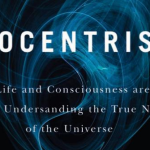Is Atheism a Religion? Let’s Ask What We’re Asking
by Chana Messinger
Filed under Atheism
EDITOR'S NOTE: Today's post from atheist blogger Chana Messinger continues a series here at Strange Notions on whether atheism is a religion. Be sure to read the past articles by Jimmy Akin (Is Atheism a Religion?) and Stephen Bullivant (Atheist Religions?).
I have been asked to provide the atheist perspective on the question of whether atheism is a religion or can be reasonably called one, and so I shall, primarily in response to Jimmy Akin’s piece, “Is Atheism a Religion?”
I agree with Mr. Akin that “taking a position on God and the afterlife” is a reasonable definition of a religion, though it is in my opinion it veers towards the overly broad. But the rationalist approach to language has taught me that while an important step is to acknowledge that various definitions may be reasonable, another is to realize that each definition is really an answer to a question; the next step, then, is to decide what questions are being asked and how well our given definition can answer them.
So my question is: What questions are we asking when we ask if something is a religion or if someone is religious?
If by asking if atheism is a religion we are asking whether atheism has opinions on the existence of God and the afterlife, then atheism certainly is a religion (and agnosticism, for instance, may not be). Atheists even occasionally have an intellectual/emotional commitment to their beliefs about God and the afterlife the way that religious people do, though they lack the large cluster of beliefs that tend to characterize other religions.
But is this the question we are typically concerned with?
Far more often, we use the word religious in place of the word “theist”, and asking if someone is religious is a more polite way of asking if they believe in God. Given this usage, it would not certainly not be helpful to call atheism a religion, as it would only confuse.
We might also be asking whether a system of thought requires faith, such as in miracles, an afterlife, or a supernatural entity. In such a case, it does not help us to equate atheism to other systems we call religions. I wrote previously about the ways in which any system requiring faith in the supernatural must account for the intersection between empirical and religious claims. Atheism has no such requirement.
Some claim that it takes just as much faith to not believe in God as to believe in God. I disagree, but even if it is true, it is at most the kind of faith of a nondenominational theist; it is certainly not the same kind of faith as faith in a God with specific characteristics, powers and history. To employ the tu quoque of “you have faith too!” in conversation with an atheist is missing most of the point. There is something different about rejecting supernatural commitments than about accepting them, and it is worth maintaining that difference to achieve better understanding.
We might ask whether a system of thought determines commitments to certain practices for specific reasons. We might be wondering whether atheism requires something like regularly attending services or refraining from eating shellfish, and if it guarantees rewards for appropriate behavior. Again, it is not useful here to put atheism in the same category as religions like Islam or Christianity. While some think it odd that I, as an atheist, go to services at Jewish synagogues on a regular basis, they cannot point to a prohibition I am committed to that would bar me from doing so, nor a punishment I ostensibly believe would come to me as a result.
Finally, we may ask whether atheism comes with an attendant set of values, as religions frequently do. The diversity within the atheist community on this question itself speaks to the answer being a negative one. Some atheists adhere only to the core idea: that there is no God. Nothing else need be involved. Skepticism, the valuing of the separation of church and state, political liberalism and anti-religious sentiment are all optional add-ons that are not fundamental to atheism. This is distinguished from religions, in which, while a diversity of opinion certainly exists, a group of values is at the core of the belief system.
Mr. Akin’s definition of religion, a system which takes a stand on the existence of God and the afterlife, certainly points to a similarity or kinship between atheism and other religions that many may not have noticed. However, it does not seem to be a particularly useful definition, and I would wager it is not the one he uses in his daily life either. The vast majority of the characteristics for which “religion” is a proxy do not apply to atheism or atheists. They may better apply to humanism or what we might call atheist religions (different from atheism as a religion), discussed beautifully here.
While of course many definitions of religion can be used, and no religion need satisfy all the criteria I have laid out, atheism can be described only by the broadest possible definitions of religion. Even then, atheism fits uncomfortably with the rest of the cluster. It should therefore not be considered one in most common contexts. Such usage leads at best to misunderstanding and at worst to an avoidance of atheist arguments by shifting the burden of proof, because after all, “you’re religious, too.” I would hope that religious people would take pride in the all-encompassing system of thought and belief to which they belong, so much broader than the one truth claim of atheism, and not seek to elide the difference.
Related Posts
Note: Our goal is to cultivate serious and respectful dialogue. While it's OK to disagree—even encouraged!—any snarky, offensive, or off-topic comments will be deleted. Before commenting please read the Commenting Rules and Tips. If you're having trouble commenting, read the Commenting Instructions.













